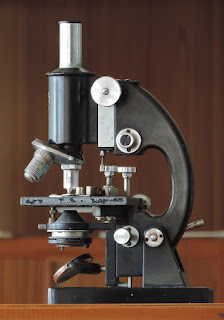Friday, March 18, 2022
Pulses Ripple
Tuesday, January 11, 2022
Being Conspicuous
Tuesday, September 21, 2021
Feeling the Choices
Tuesday, June 29, 2021
Open Architecture
Tuesday, March 30, 2021
Choosing Decision Makers
To outsource your decision-making, you need to develop trust. I like to believe in a world where we can have open conversations. The reality is that you can’t just decide to be honest, and vomit truth on someone. Truth needs unpacking. Trust is built. Both need time. It is dangerous to outsource decision-making, in part because we attach responsibility to the decision-maker. We attach identity to the decision-maker. We attach respect and blame. To outsource decisions, you need trust and confidence. Trust that the other decision-maker has your best interests at heart. Confidence that they have the competence to do what it is that they claim they will do. The decision about who to hand over responsibility to, is as important as the actual skill and knowledge required to make the relevant choice. Evaluating decision-makers is a skill in and of itself. Badly evaluating decision-makers allows you to pass on responsibility, and have a target to pin blame on should things go wrong. It does not solve the problem.
Friday, March 26, 2021
Taking Direction
What do you do if autonomy is really important to you, but you find something or someone else makes better decisions than you do? Imagine you had an app on your phone that was similar to GPS and Google Maps, but for life choices. In the beginning, I certainly didn’t trust GPS. When it first came out, it wasn’t great. I was working in a job where I had to visit various financial advisors in Joburg. I was a Durban boy, not a Joburger, so I had to use maps. GPS would tell me “you have reached your destination”, and I would be in the middle of the highway. I knew enough to know my destination, even if the path was cloudy. I had enough of a sense of my direction to know, “I am pretty sure this isn’t the right turnoff”. I would start by saying, “trust the GPS”, but I would end up in the wrong place. But gradually it got better, and gradually I started feeling comfortable letting it make decisions for me. Letting me focus on other things.
Friday, November 13, 2020
Single Serving
We do not have full knowledge of other people’s stories. It helps to build an environment that supports repeated interaction. Connected stories.
The hardest part of making money is building a relationship with decision-makers with money. Finding clients.
A decision-maker will do the hard work of deciding they trust you enough to give you money. That is emotional work. They do not need to do that initial heavy lifting again if trust is maintained. Build deep relationships. Superficial relationships will leave you constantly searching for new clients. If you are serving them once, but then maybe they never want to see you again, because you have not acted with integrity, and they regret their initial decision.
Tuesday, September 22, 2020
Sharing Interests
People are interested in people who are interested in them. I have a deep reserve of inner confidence, partly because my Mother was always fascinated in, and supportive of, anything (and everything) I found interesting. My curiosity always had an army of motherly reserves. The South African bubble I grew up in has some resistance similar to British reserve to faking and overenthusiasm. I didn’t read the book “How to win friends and influence people” (Dale Carnegie) for years because the title sounded very “American” and fake. It is, I discovered, a brilliant text with some very practical observations on reality. One of those realities is we respond to people who show interest in us. Who are interested *because* we are interested. We recognise that indicates a deeper level of loyalty and willingness to put effort in, in order to share our worlds. If you want people to be genuinely interested in you, be genuinely interested in them. Yes, that takes effort. It shows.
Trusting the Container
The Holy Grail is a direct, sustainable, relationship with decision makers with money, where you have their trust and confidence. Trust that you intend to solve their problem. Confidence that you can. Relationship building is one of the strongest barriers to entry. Trust is built from multiple layers and signals to show that the words and ideas being exchanged mean the same thing to both people. A lot is lost in translation between worlds. This is why nepotism and prejudice are so powerful. In a world of complexity, friendship, community, and emotional connection are a way of cutting through the noise. A lot of business has nothing to do with business. The specific problem being solved is far less relevant, than the sustainability (and containability) of the connection. Building trust in the container of the relationship.



















